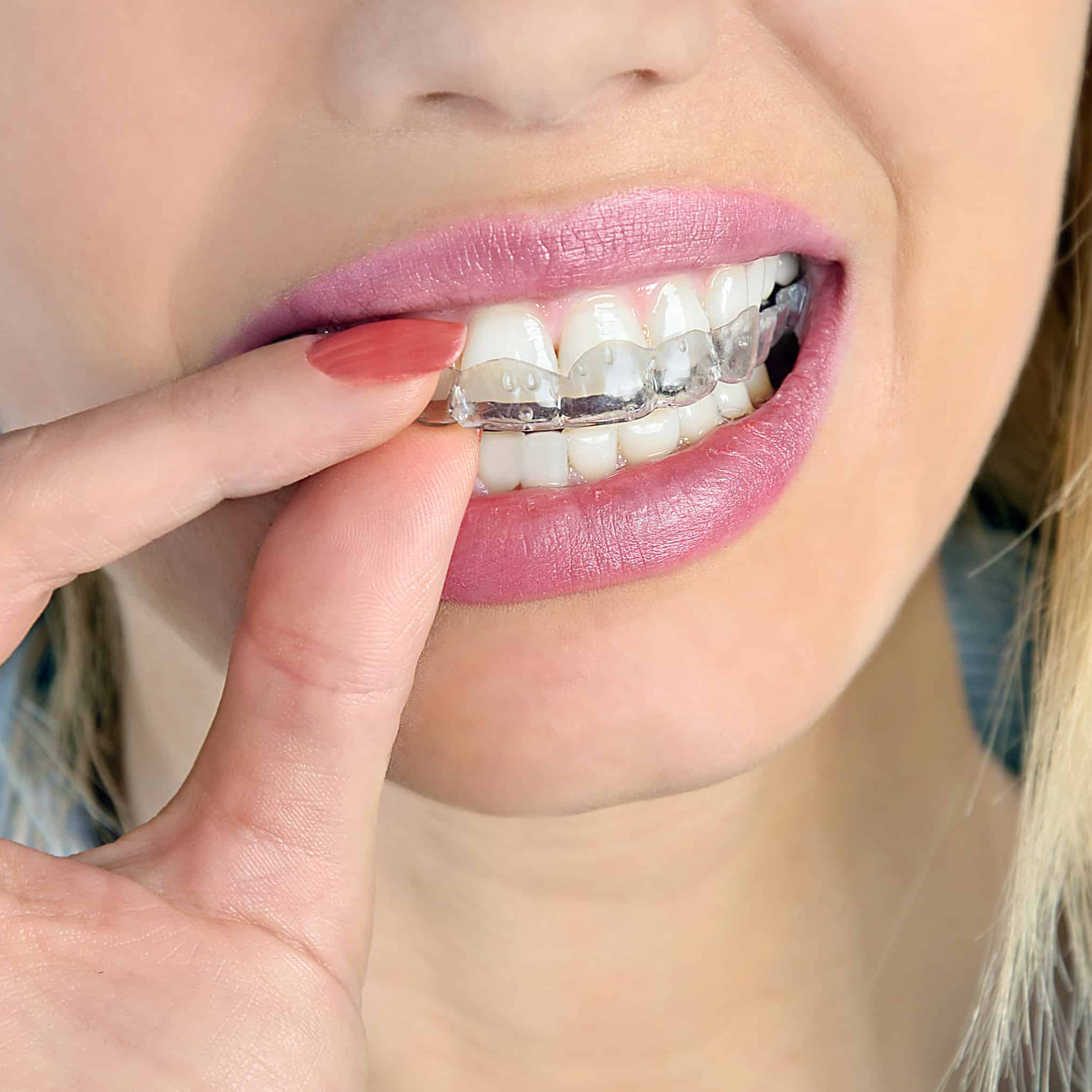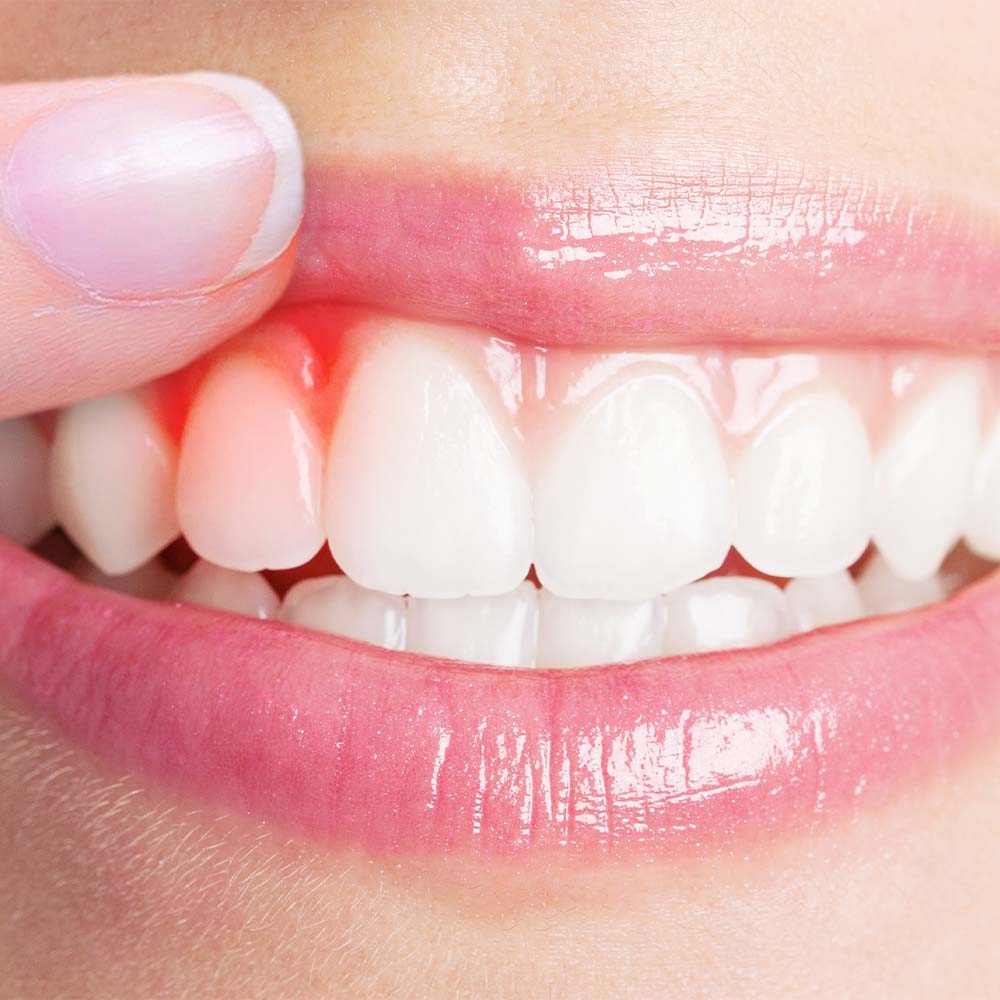Here at The Courtyard Clinic we have many clinicians with a breadth of experience to help you with teeth badly broken down that can not be restored or that you wish to be removed instead of having a root canal treatment. Other teeth may need to be removed due to orthodontic reasons or if they are in the wrong position.
Some extractions are simple, however, others are more complex requiring a surgical approach. We have you covered at The Courtyard Clinic whatever the eventuality.
Surgical extraction is the removal of a tooth that presents clinically with a condition that does not safely or adequately allow access using a non-surgical approach. Surgical extractions require an incision, elevation, and on occasion bone removal when indicated.
Wisdom Teeth
Sometimes there may not be room in your mouth for your wisdom teeth and, as they start to come through, they push against the teeth already there or may start to come through at an angle. When this happens, you might feel some pain or discomfort, so the best thing to do is to visit us at the clinic to have a look.
What could be happening is as the teeth are tightly packed together decay develops at the contact point between the wisdom tooth and the tooth infront as its hard to keep the area clean or the gum overlying the partly erupted tooth gets infected as it is hard to keep this area clean too.
X-Ray
Your dentist will probably take an x-ray of your mouth to see how – or if – your wisdom teeth are coming through. From this, they will be able to make a judgement on whether to take them out or restore the teeth and how easy or difficult this might be.
Extractions can also be done under sedation at The Courtyard Clinic.
Who will be taking your teeth out?
surgical extraction
Aftercare
Surgical Extractions
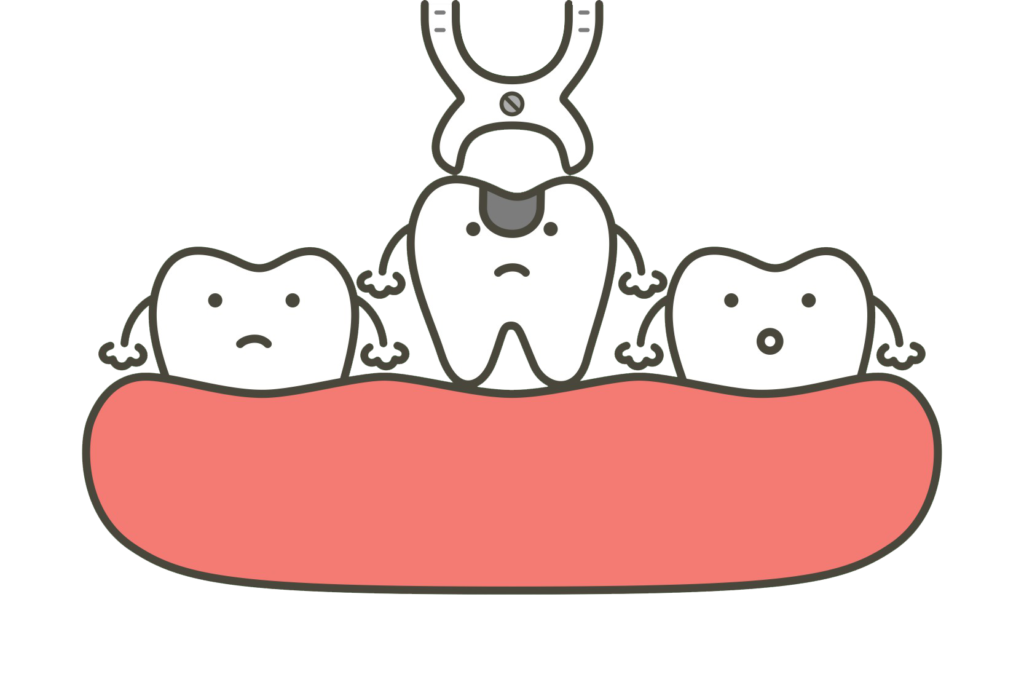
- For the first 24 hours, try to avoid eating hot food/drink, don’t smoke, don’t drink any alcohol, and try not to disturb any blood clot which might have formed.
- Don’t rinse your mouth for 24 hours after extraction. After that, rinse gently with warm salty water – half a teaspoon of salt in a glass of water is enough.
- Brush your teeth as normal to keep your mouth as clean as possible, just avoid the socket where your tooth was taken out.
- You may feel some small pieces of bone work their way out of the socket – don’t worry, this is perfectly normal.
- There may be some swelling and a bit of discomfort in the first two to three days. If you need to, take some ordinary painkillers – ibuprofen or paracetamol will be fine if you can take these medications.
- If you feel pain a few days after the tooth has been removed, it might be where the blood clot has broken down leaving an empty hole in the gum. This is called a ‘dry socket’ and will need to be looked at by your dentist. Simply call the clinic on 01932 582 949 for further treatment.
- If you experience a bleed after treatment we will have given you some gauze to place onto the area where the tooth has been removed – if not, a clean cloth handkerchief will do just as well (but not a paper tissue).Roll it into a small firm pad large enough to fit over the gap (probably around 1cm by 3cm). Bite down on it firmly for 10 to 15 minutes. Take the pad off and check whether the bleeding has stopped. If not, apply a fresh pad and contact your dentist
Replacing Removed Teeth
Surgical Extractions
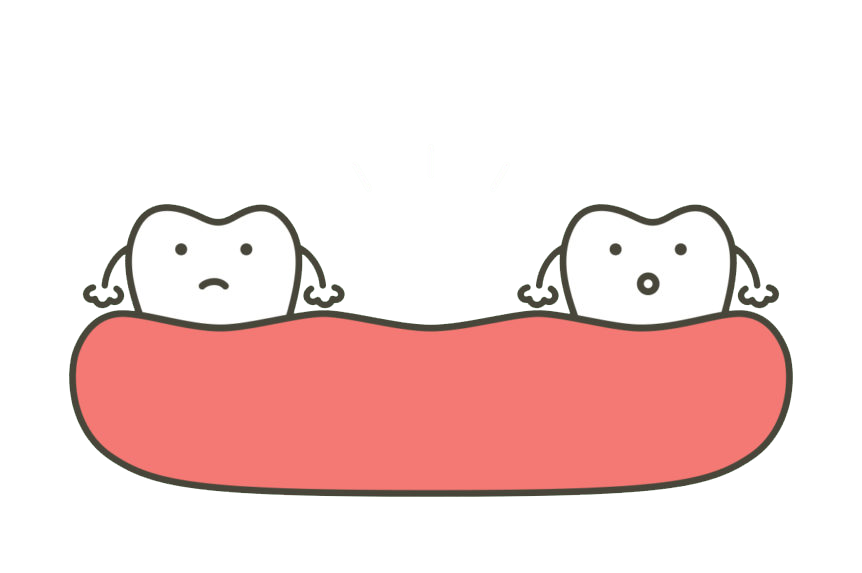
Once you’ve had a tooth extraction, our surgeons will usually recommend you fill the gap where your tooth used to be. Gaps left by missing teeth can cause the following problems:
- Puts a strain on neighbouring teeth.
- Affects the way you bite.
- Leaves you more susceptible to tooth decay and gum disease.
- Can cause the opposing tooth to over-erupt into the gap left.
Treatments
tooth replacement options

Dental Implants
A dental implant is a long-term, discreet solution for replacing missing or failing teeth. A dental implant itself is a titanium screw that’s placed directly into your jawbone, replacing the missing root of your tooth.
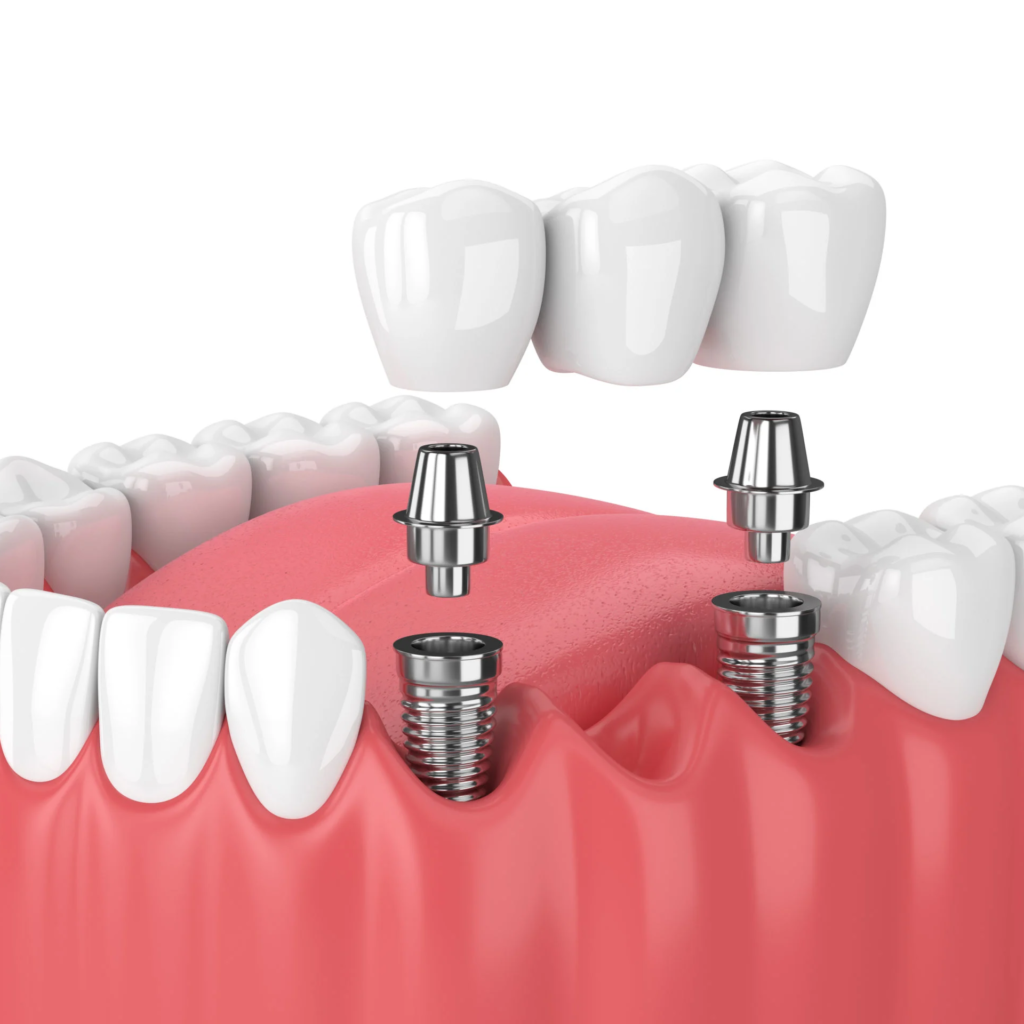
Dental Bridges
A dental bridge essentially bridges a gap in your mouth. A bridge replaces a missing tooth by using a false tooth that’s bonded to the natural teeth on either side of the gap.
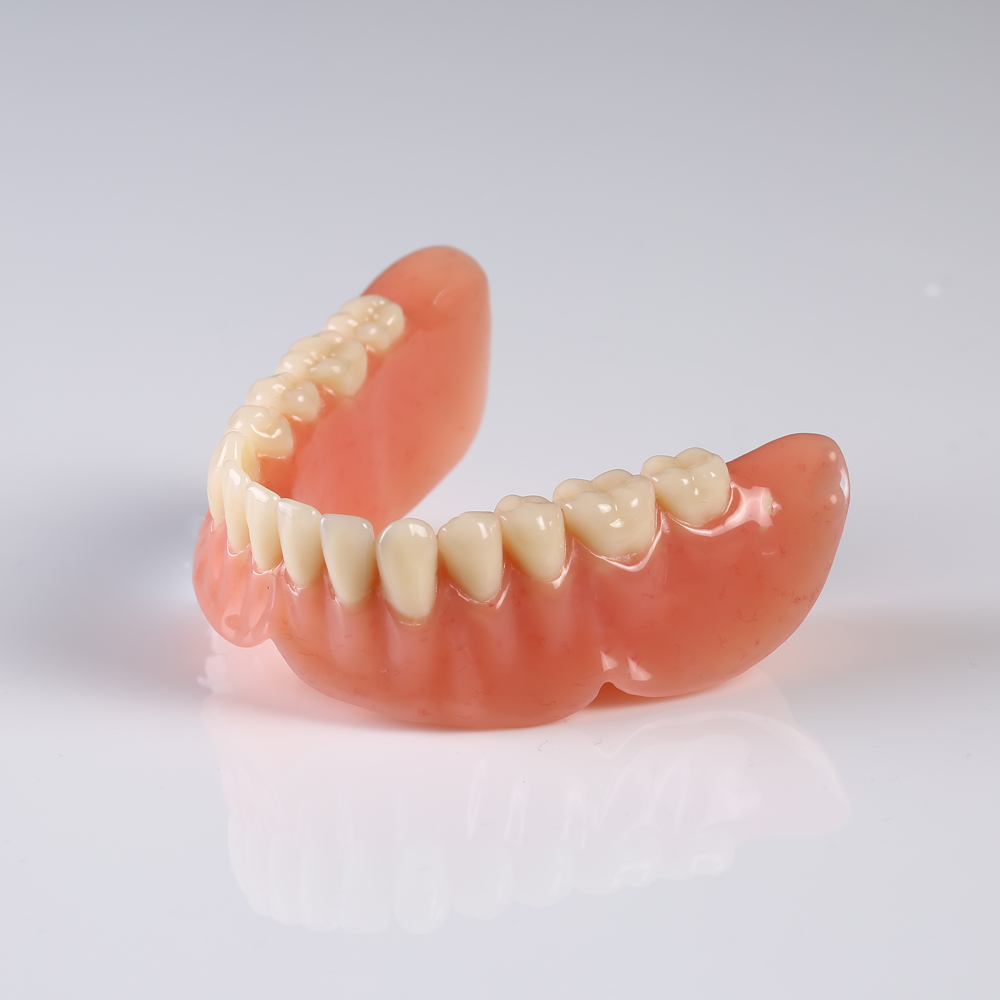
Dentures
Dentures are removable plastic or metal frameworks that carry single or multiple false teeth. They’re suitable for filling multiple gaps or if you have no teeth at all.




